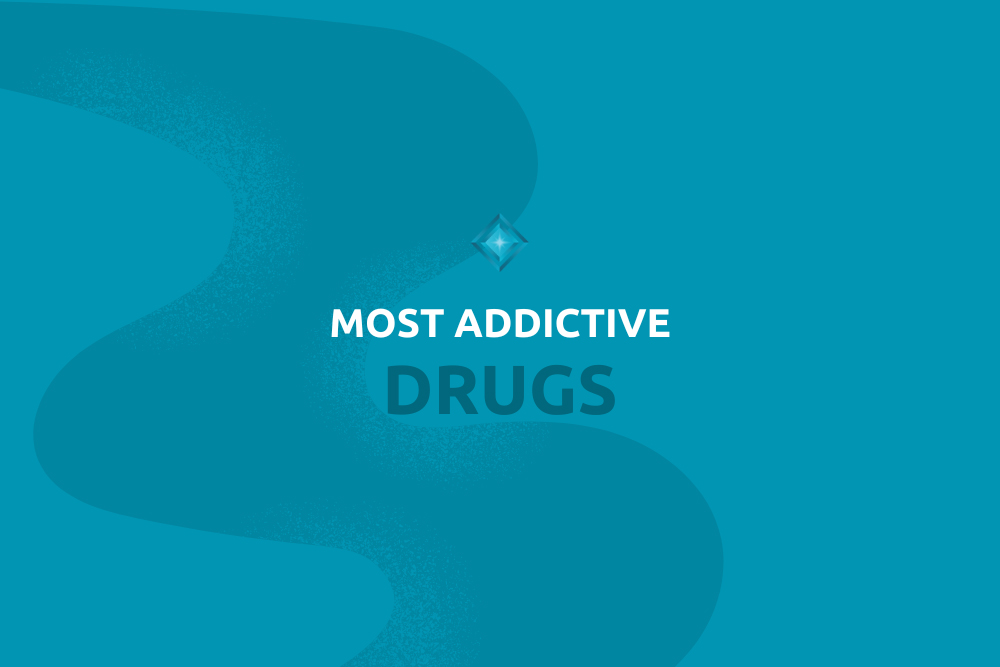Addiction is a complicated mental and behavioral health disease that can affect anyone, regardless of their belief system, income level, age or gender. Various factors can increase your likelihood of experiencing drug abuse problems, including genetics, environment, health history and substance of use. Still, some drugs have a higher potential for addiction than others.
1. Cocaine
Cocaine is a stimulant derived from the leaves of the coca plant. It causes a rapid dopamine rush that leads to heightened pleasure and sexual arousal, increased talkativeness and a sense of improved focus and mental acuity.
The danger of cocaine is how quickly users can develop a tolerance. Because the first use of cocaine represents a novel experience for your brain, subsequent episodes of cocaine use will produce less intense results, leaving you chasing a high. While taking cocaine once or twice doesn’t necessarily mean you’ll become addicted, any use can be dangerous and increase your risk of becoming dependent on the drug at some point.
2. Meth
Though the severe health risks of using meth are common knowledge, many people still experiment with the drug. Meth is more dangerous than other stimulants because it stays present in the brain longer, with effects that last up to 24 hours. The drug is toxic to nerve terminals in the brain, and meth can destroy the synapses that release dopamine, causing mood disturbances and dependence.
Prolonged meth use changes users’ brain chemistry and reward center. This drug can also cause irreversible damage to bodily systems and blood vessels, which can lead to a stroke.
3. Opioids
Opioids include prescription painkillers such as OxyContin and illicit drugs like heroin. They are extremely addictive and can quickly lead to physical dependence. Most states have enacted strict limits on how many pills doctors can prescribe, leading people with a prescription opioid addiction to get their drugs illegally.
In addition to the brain changes caused by opioids, these substances can cause a fatal overdose if you take more than your body can handle. Respiratory failure is the most common cause of a drug overdose, and it occurs when the opioids suppress central nervous system function.
4. Benzodiazepines
Benzodiazepines, which include Valium, Klonopin and Ativan, have a calming effect. Though they can be beneficial for people with anxiety, panic disorder, insomnia and muscle spasms, they are also highly addictive, making long-term use dangerous. People who suddenly stop taking benzos can experience overwhelming side effects like agitation, panic, hallucinations and seizures.
5. Alcohol
You may be surprised to find alcohol on this list because it has been culturally acceptable for decades and is easy to obtain. However, all the glamorous commercials can’t diminish the reality that alcohol is the world’s most harmful drug. It can damage every organ and tissue in your body, make you more susceptible to physical and mental health problems and cause problems with your relationships and responsibilities.
Start Your Sobriety Journey at New Found Life
Regardless of what substances you have taken and how long you have struggled with addiction, New Found Life can help you break free and discover the joys of sobriety. We offer evidence-based treatments customized to meet our clients’ specific needs in recovery. Residents can immerse themselves in our inpatient education and rehabilitation program ready to embrace a sober lifestyle and work through a 12-step program in a non-judgmental, single-gender environment.
Reach out to our admissions team today to verify your insurance coverage and learn more about what makes us a leader in the addiction recovery community.

